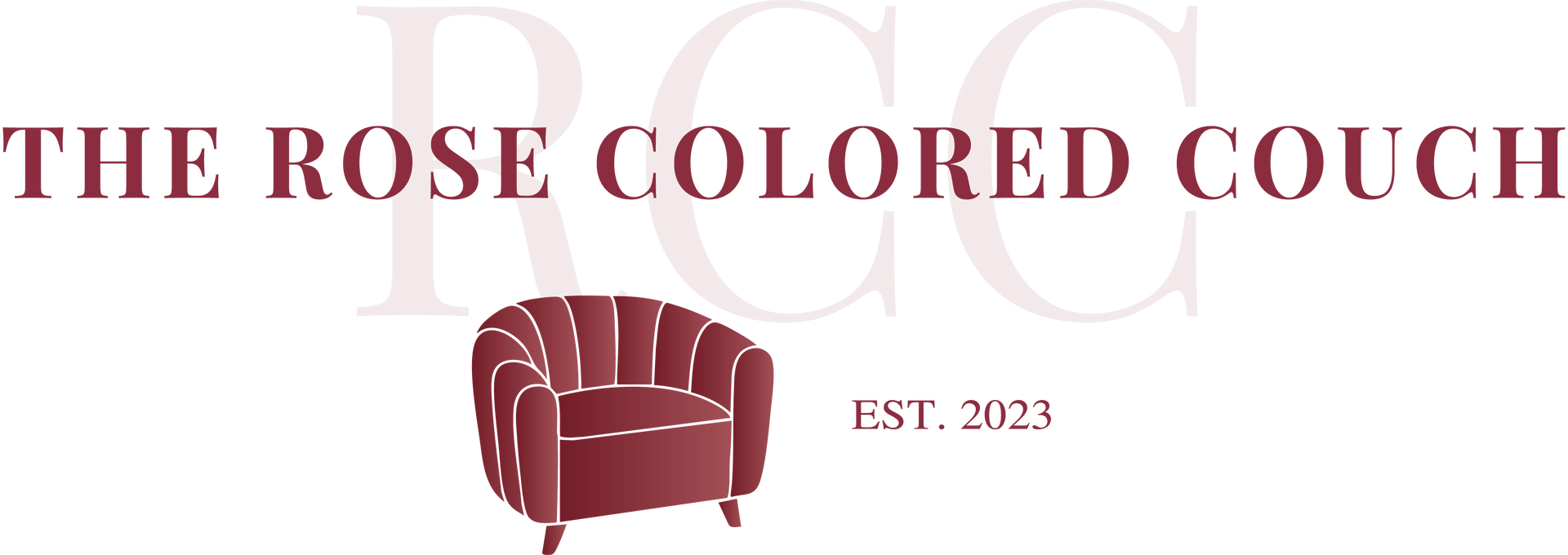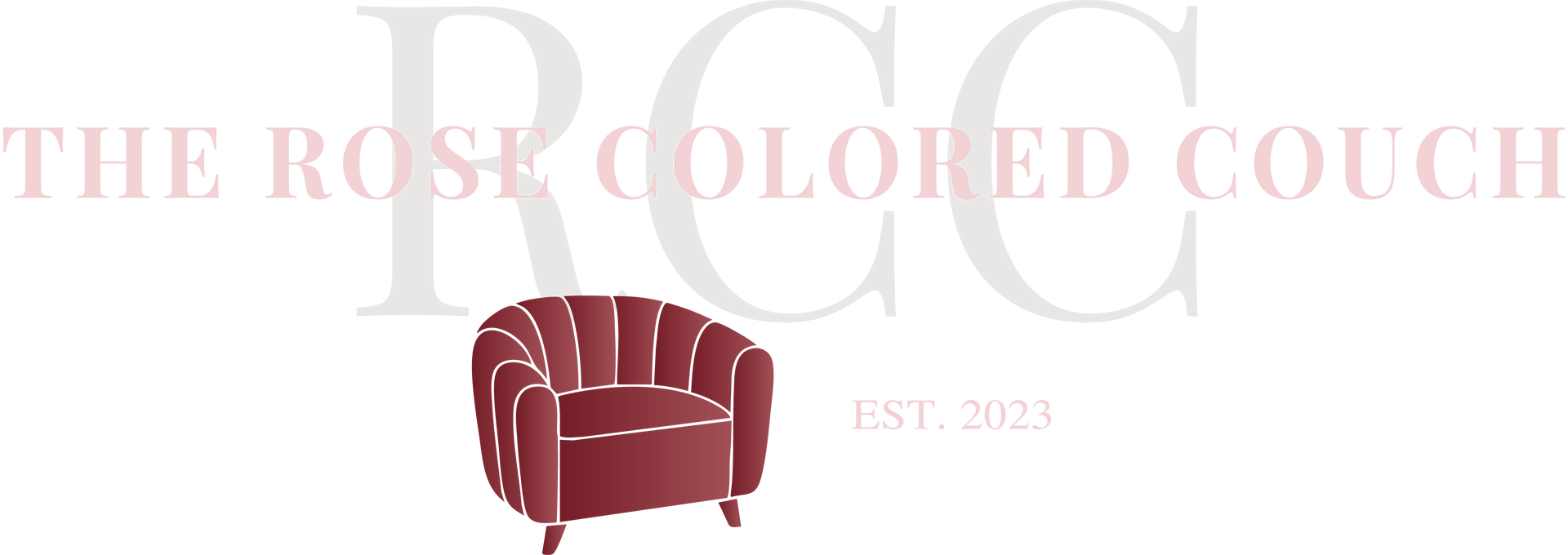High Achiever Therapy Virginia: The High-Achiever's Paradox - Why Being 'Good at Everything' Makes You Feel Good at Nothing
By Dr. Najwa Mohamed • September 19, 2025

Introduction
If you're reading this, you're probably the person everyone else looks at with a mixture of admiration and bewilderment. You're the high achiever who seems to excel at everything: work, relationships, hobbies, even your social media presence. From the outside, your life looks like a carefully curated success story. But inside? You're exhausted, anxious, and haunted by the persistent feeling that you're somehow failing at everything that truly matters.
This is the high achiever's paradox: the more you accomplish, the less satisfied you feel. The higher you climb, the more convinced you become that you don't deserve to be there. As a licensed clinical psychologist with over six years of experience specializing in high achiever therapy in Virginia, I've witnessed this pattern countless times. The truth is, being "good at everything" often becomes a prison where you never feel good enough.
You're not broken, and you're definitely not alone. What you're experiencing is incredibly common among high-functioning individuals who've learned that their worth depends on their performance. The compassionate news? When you understand the underlying causes of these feelings and work towards developing healthier perspectives, everything can change.
Article Outline
In this comprehensive guide to high achiever therapy, we'll explore:
- Understanding the high achiever mindset and its hidden costs
- Why perfectionist high achievers struggle with chronic dissatisfaction
- The unique challenges facing high achievers in Virginia's competitive landscape
- How anxiety and depression manifest differently in high achievers
- Effective coping strategies and treatment approaches for high achievers
- The role of self-compassion in breaking perfectionist cycles
- When and how to seek professional therapy support
- Building sustainable success without sacrificing mental well-being
Understanding High Achievers: More Than Just High Performance
The term "high achiever" often carries positive connotations in our achievement-oriented culture. However, as a licensed clinical psychologist who works with high achievers daily, I've learned that there's a crucial distinction between healthy high achievement and the exhausting pattern of compulsive achievement.
What Defines a High Achiever:
High achievers don't just meet expectations; they consistently exceed them, often by significant margins. They're the students who don't just aim for A's; they need to be valedictorian. They're the employees who don't just complete their assignments; they volunteer for extra projects while maintaining perfectionist standards for everything they touch.
The High Achiever's Internal Experience: While others see success and competence, high achievers often experience chronic feelings of inadequacy despite obvious accomplishments, persistent fear that they're somehow fooling everyone around them, exhaustion from maintaining impossibly high standards, difficulty celebrating achievements before immediately focusing on the next goal, and a nagging sense that they should be doing more, being more, achieving more.
This pattern of high achievement often develops as a coping mechanism, particularly for those who learned early that love, attention, or acceptance was conditional on performance. As a Virginia licensed clinical psychologist, I help clients explore the underlying causes of these feelings while developing more sustainable approaches to success.
The Perfectionist High Achiever: When Excellence Becomes a Prison
Perfectionist high achievers face unique challenges that go beyond typical high achievement. They don't just want to do well; they need everything to be flawless. This perfectionism creates a paradox: the very drive that helps them excel also prevents them from truly enjoying their successes.
The Perfectionist Mindset:
- All-or-nothing thinking: "If it's not perfect, it's a failure"
- Catastrophic fear of making mistakes
- Inability to delegate or trust others to meet their standards
- Procrastination when perfectionist standards feel unattainable
- Self-worth entirely tied to external achievements and validation
The Hidden Costs of Perfectionist High Achievement: While perfectionist high achievers often achieve remarkable external success, they frequently struggle with chronic anxiety and stress from maintaining impossible standards, depression stemming from never feeling good enough, burnout from constant overextension, relationship problems due to perfectionist expectations of others, and physical health issues from chronic stress and self-neglect.
As an experienced therapist specializing in high achiever therapy, I've observed that perfectionist high achievers often resist asking for help because they believe they should be able to figure everything out on their own, which is another manifestation of their perfectionist beliefs.
Clinical Psychology Expertise: Understanding Complex Achievement Patterns
As a licensed clinical psychologist (LCP), my training includes a deep understanding of how psychological, developmental, and environmental factors contribute to high achiever patterns. Clinical psychologists are specifically trained to assess and treat complex psychological conditions, which is crucial for understanding high achievement.
The Clinical Psychology Advantage in High Achiever Therapy:
- Comprehensive Assessment: Understanding the full psychological picture behind achievement patterns
- Evidence-Based Treatment: Using research-supported therapeutic approaches for perfectionism and anxiety
- Diagnostic Expertise: Recognizing when high achievement masks underlying conditions like anxiety or depression
- Trauma-Informed Care: Understanding how early experiences shape achievement-oriented coping strategies
Doctorate-Level Training and High Achiever Understanding: My doctoral education in clinical psychology emphasized understanding the complex interplay between personality, cognition, and behavior. This perspective is particularly valuable for high achievers because their patterns often develop in response to specific psychological and environmental factors.
Many high achievers I work with come from families or cultures where achievement was the primary way to earn love, attention, or approval. Others developed high achiever patterns as a response to trauma, instability, or other psychological stressors. Understanding these underlying causes helps create more effective treatment approaches.
Specialties and Expertise: Tailored Approaches for High Achievers
In my practice, I've developed specialized expertise in working with the unique challenges that high achievers face. This includes understanding the intersection of high achievement with various mental health concerns and life circumstances.
Core Specialties for High Achiever Therapy:
- Anxiety and Depression in High Achievers: Recognizing how these conditions manifest differently in high achievers
- Perfectionism Treatment: Helping clients develop healthy standards while releasing crushing perfectionist expectations
- Burnout Recovery: Supporting high achievers in recovering from chronic exhaustion and stress
- Imposter Syndrome: Addressing the persistent feeling of being a fraud despite obvious competence
- Work-Life Balance: Helping high achievers create sustainable approaches to success
Additional Specialized Areas:
- Attention Deficit challenges: Supporting high achievers who use achievement to compensate for ADHD
- Cultural Identity Integration: Particularly for high achievers navigating multiple cultural expectations
- Relationship Patterns: Addressing how perfectionism affects intimate relationships and friendships
- Career Transitions: Supporting high achievers through professional changes and identity shifts
As a therapist with extensive experience in these areas, I understand that high achievers often need specialized approaches that honor their drive while helping them develop more sustainable patterns.
Treatment Approach: Integrative Methods for Sustainable Change
My treatment approach for high achievers integrates multiple therapeutic modalities while honoring clients' strengths and achievements. Rather than viewing high achievement as purely problematic, I help clients develop more sustainable and fulfilling approaches to success.
Core Treatment Components:
Cognitive Behavioral Therapy (CBT): CBT is particularly effective for high achievers because it addresses the thought patterns that fuel perfectionism and anxiety. We work on identifying and challenging all-or-nothing thinking, developing more realistic and self-compassionate internal dialogue, creating behavioral experiments to test perfectionist beliefs, and building tolerance for imperfection and "good enough" outcomes.
Mindfulness and Self-Compassion Work: Many high achievers struggle with being present because they're constantly focused on future goals or past mistakes. Mindfulness practices help clients develop present-moment awareness, notice perfectionist thoughts without being controlled by them, cultivate self-compassion as an alternative to self-criticism, and find meaning and satisfaction in the process, not just outcomes.
Psychodynamic Approaches: Understanding the deeper psychological roots of achievement patterns helps clients examine past experiences that shaped their self-concept, identify patterns learned in childhood that no longer serve them, heal from criticism, rejection, or emotional wounds, separate their true self from internalized messages about their worth, and develop a more accurate and compassionate self-narrative.
Solution-Focused Interventions:
Given that high achievers are often goal-oriented, solution-focused approaches can be particularly engaging. We work on identifying what's already working well in their lives, building on existing strengths and coping strategies, setting realistic and meaningful goals for therapy, and celebrating progress and small victories along the way.
Getting Help: Breaking the High Achiever Therapy Barriers
One of the biggest challenges in providing high achiever therapy is that many high achievers resist asking for help. They often believe that needing support is evidence of weakness or failure, beliefs that are directly counter to recovery.
Common Barriers High Achievers Face: "I Should Be Able to Handle This Myself": Many high achievers view seeking therapy as admission of failure. They've spent their lives being the person others turn to for help, making it difficult to accept that they might need support themselves.
Fear of Appearing Vulnerable: High achievers often maintain carefully constructed images of competence and control. The thought of being vulnerable with a therapist can feel terrifying, especially if their identity is built around being "the strong one."
Concern About Time and Productivity: Many high achievers worry that therapy time could be better spent on achieving their goals. They may struggle to see emotional well-being as productive or valuable compared to external accomplishments.
Perfectionist Expectations of Therapy: Some high achievers approach therapy with the same perfectionist standards they apply elsewhere, expecting immediate results or viewing anything less than rapid transformation as failure.
Addressing These Barriers: As a therapist experienced in working with high achievers, I help clients understand that seeking help is actually evidence of wisdom and self-awareness, therapy can enhance rather than detract from their achievements, vulnerability is a strength that leads to deeper connections and authentic success, and progress in therapy, like other areas of growth, happens gradually over time.
Creating a non-judgmental space where high achievers can explore these beliefs is essential for effective treatment.
Attention Deficit and High Achievement: A Complex Relationship
An interesting pattern I've observed in my practice is the relationship between attention deficit challenges and high achievement. Many high achievers, particularly women, discover later in life that they have ADHD that was masked by their high achievement.
How ADHD and High Achievement Intersect:
- Compensation Strategies: Some individuals develop high achiever patterns to compensate for executive function challenges
- Hyperfocus on Interests: ADHD hyperfocus can contribute to exceptional achievement in specific areas
- Perfectionism as Control: Perfectionist standards may develop as a way to manage ADHD-related inconsistencies
- Masking and Camouflaging: High achievement can hide ADHD symptoms, particularly in girls and women
Supporting High Achievers with Attention Deficit: When working with clients who have both high achiever patterns and attention deficit challenges, treatment often involves understanding how ADHD symptoms contribute to perfectionist strategies, developing ADHD-friendly organization and time management systems, addressing shame and self-criticism related to neurodivergent traits, building self-compassion for brain differences and limitations, and creating sustainable success strategies that work with, not against, ADHD.
This intersection requires specialized understanding of both high achiever psychology and neurodivergent experiences.
Working with Anxiety and Depression in High Achievers
Anxiety and depression often present differently in high achievers, making these conditions harder to recognize and treat. High-functioning individuals may maintain their external performance while struggling significantly internally.
High-Functioning Anxiety in High Achievers: Unlike typical anxiety presentations, high-functioning anxiety in high achievers often looks like perfectionist preparation and over-researching, inability to relax or "turn off" achievement mode, physical symptoms like insomnia, headaches, or digestive issues, procrastination alternating with intense productivity bursts, and social anxiety masked by professional competence.
Depression in High Achievers: Depression in high achievers may manifest as feeling empty or meaningless despite external success, loss of motivation for previously enjoyed achievements, increased self-criticism and perfectionist standards, difficulty experiencing pleasure or satisfaction from accomplishments, and thoughts that their success is fraudulent or undeserved.
Specialized Treatment Approaches:
Treating anxiety and depression in high achievers requires understanding their unique presentations by recognizing that traditional symptom checklists may not capture their experience, addressing the shame and confusion about feeling depressed while appearing successful, helping clients develop internal measures of success and well-being, and supporting gradual reduction of perfectionist standards without triggering fear of failure.
Mindfulness Practices for Perfectionistic Minds
Mindfulness can be particularly challenging and beneficial for high achievers. Their minds are often constantly planning, analyzing, and evaluating, making present-moment awareness feel foreign or unproductive.
Mindfulness Challenges for High Achievers:
- Viewing meditation as another task to perfect
- Difficulty accepting that mindfulness is about being, not doing
- Frustration with wandering minds during practice
- Tendency to judge their meditation "performance"
- Resistance to slowing down or appearing unproductive
Adapted Mindfulness Approaches: I've found that high achievers respond well to mindfulness practices that have clear structure and goals, include psychoeducation about the benefits, start with shorter, more manageable practices, incorporate movement or action-oriented mindfulness, and frame mindfulness as a skill for enhancing performance and well-being.
Specific Mindfulness Practices for High Achievers:
- Body scan meditation: Helps reconnect with physical sensations and needs
- Mindful breathing: Provides an anchor during overwhelming moments
- Walking meditation: Combines movement with mindfulness practice
- Loving-kindness meditation: Develops self-compassion and reduces self-criticism
- Mindful work practices: Bringing awareness to daily activities and tasks
These practices help high achievers develop a healthier relationship with their thoughts and reduce the constant mental chatter that fuels perfectionism.
Building Effective Coping Mechanisms
High achievers often have sophisticated coping strategies for external challenges but lack effective tools for managing internal emotional experiences. Developing a toolkit of healthy coping mechanisms is crucial for sustainable well-being.
Emotional Regulation Skills:
- Identifying trigger situations: Recognizing patterns that lead to perfectionist spirals
- Grounding techniques: Tools for managing overwhelming anxiety or stress
- Self-soothing practices: Healthy ways to comfort themselves during difficult moments
- Distress tolerance: Building capacity to sit with uncomfortable feelings without immediately trying to fix or achieve their way out
Practical Coping Strategies:
- Setting boundaries: Learning to say no and protect their time and energy
- Time management: Creating sustainable schedules that include rest and self-care
- Support system utilization: Practicing asking for help and accepting support from others
- Stress management: Developing daily practices for managing chronic stress
Cognitive Coping Tools:
- Thought challenging: Questioning perfectionist and all-or-nothing thoughts
- Perspective-taking: Considering alternative viewpoints and possibilities
- Self-compassion practices: Treating themselves with the kindness they'd show a good friend
- Values clarification: Connecting with what truly matters beyond external achievements
Building these coping mechanisms helps high achievers manage the internal pressure that drives their patterns while maintaining their natural drive and ambition.
Quality Care: Comprehensive Support for Complex Needs
Providing quality care for high achievers requires understanding the complexity and intersection of their challenges. It's not enough to address surface-level symptoms; effective treatment must address underlying patterns and beliefs.
Comprehensive Assessment: Quality care begins with thorough understanding of achievement patterns and their origins, current life stressors and pressures, mental health symptoms and their relationship to achievement, cultural and family background factors, strengths and resources available to the client, and goals and values for therapy and life.
Evidence-Based Treatment: I utilize research-supported approaches while adapting them for high achiever populations including Cognitive Behavioral Therapy for perfectionism and anxiety, Mindfulness-Based Stress Reduction for present-moment awareness, Acceptance and Commitment Therapy for values-based living, Dialectical Behavior Therapy skills for emotional regulation, and psychodynamic approaches for addressing deeper psychological patterns.
Collaborative Treatment Planning: Given that high achievers often appreciate involvement in their treatment planning, we focus on setting clear, measurable goals for therapy, regular check-ins about progress and satisfaction, flexibility to adjust approaches based on what's working, integration of client feedback and preferences, and education about treatment rationale and expected outcomes.
This collaborative approach honors high achievers' need for understanding and control while providing professional expertise and guidance.
Virginia and Regional Understanding
My practice serves high achievers throughout Virginia, allowing me to understand the specific cultural and professional contexts that contribute to achievement pressures in different areas of the state.
Virginia's Achievement Culture: The Northern Virginia area, in particular, has a highly competitive professional culture that can fuel high achiever patterns including proximity to Washington, DC creating high-pressure political and professional environments, tech industry growth in the region attracting and creating high achievers, educational competitiveness in areas like Fairfax County, and cost of living pressures that can intensify achievement focus.
Understanding Regional Challenges: Working with clients throughout Virginia, I understand the unique stressors of different professional environments, cultural diversity and the intersection of achievement with cultural expectations, educational and career pressures specific to the region, and work-life balance challenges in different metropolitan areas.
This regional expertise helps ensure that treatment is relevant to clients' specific life contexts and environments.
Mental Well-being: A Holistic Approach to High Achiever Support
True recovery from problematic high achiever patterns involves more than just reducing perfectionism. It requires building comprehensive mental well-being and life satisfaction.
Components of Mental Well-being for High Achievers:
- Emotional wellness: Developing healthy relationships with emotions and stress
- Physical health: Addressing the body's needs for rest, nutrition, and movement
- Social connections: Building authentic relationships based on genuine connection rather than performance
- Spiritual/existential wellness: Finding meaning and purpose beyond external achievements
- Creative expression: Engaging in activities for joy and self-expression rather than achievement
Sustainable Success Patterns: Working toward mental well-being involves helping high achievers develop internal measures of success and satisfaction, regular self-care practices that aren't viewed as selfish or unproductive, healthy boundaries between work, achievement, and personal life, resilience for handling setbacks and failures without catastrophizing, and joy and satisfaction from the process of life, not just outcomes.
Long-term Recovery Goals: The ultimate goal isn't to eliminate drive or ambition but to create sustainable achievement patterns that support rather than deplete well-being, self-worth that isn't entirely dependent on external performance, flexibility to adjust standards and expectations based on circumstances, authentic relationships and connections with others, and peace with imperfection and humanity.
This holistic approach ensures that high achievers can maintain their natural gifts and drives while developing healthier relationships with themselves and others.
Taking the Next Step: Your Journey Toward Authentic Success
Recognizing that high achievement patterns are causing problems in your life is actually the first step toward healing. It takes courage and self-awareness to acknowledge that the very patterns that have helped you succeed might also be causing you suffering.
Signs You're Ready for Change:
- You're exhausted from the constant pressure to be perfect
- Your achievements don't bring lasting satisfaction or joy
- Relationships are suffering because of perfectionist expectations
- You're experiencing anxiety, depression, or physical symptoms of chronic stress
- You find yourself procrastinating because of fear of imperfection
- You want to model healthier patterns for children or others in your life
What Recovery Looks Like: Recovery from problematic high achievement doesn't mean becoming lazy or mediocre. Instead, you'll develop sustainable achievement patterns that support your well-being, flexibility to adjust standards based on context and priorities, self-compassion that allows for mistakes and learning, authentic relationships based on genuine connection, peace with imperfection and comfort with "good enough" when appropriate, and joy and satisfaction in the process, not just outcomes.
Your Next Steps: If you're ready to explore a healthier relationship with achievement and success, acknowledge that seeking help is a sign of strength and self-awareness, research therapists who specialize in high achiever issues, schedule a consultation to find the right therapeutic fit, commit to the therapy process, including the discomfort of change, and be patient with yourself as you develop new patterns and beliefs.
Ready to Transform Your Relationship with Achievement?
As a licensed clinical psychologist specializing in high achiever therapy in Virginia, I understand the unique challenges you face. I provide compassionate, evidence-based therapy for high achievers, both in-person and through telehealth.
My approach honors your drive and ambition while helping you develop sustainable patterns that support your authentic self and mental well-being. You don't have to continue feeling trapped by perfectionist expectations or exhausted by constant achievement pressure.
Dr. Mohamed only works with adult women
You've spent so much energy perfecting everything else in your life. Isn't it time to invest that same dedication in creating genuine happiness and peace of mind?
Breaking the Cycle of Overthinking
Quiet the mental noise and move forward with confidence.
This 9-page guide shares proven psychological strategies and real client success stories.
SHARE THIS
Rose Colored Couch Blog

About Dr. Najwa Mohamed
I know how it feels to balance family expectations with the desire to build a life that’s truly your own. As the daughter of an Egyptian father and an American mother, I’ve lived the tension of navigating multiple worlds, feeling torn between roles, and striving to honor both my roots and my dreams.
Through my own therapy and self-discovery, I learned to release the beliefs that kept me small and embrace my authentic self.
Since 2018, I’ve helped women from immigrant families do the same. My clients often say they feel seen and understood, sometimes for the first time. This is therapy with someone who understands the pressures you carry and walks beside you as you move through them.






